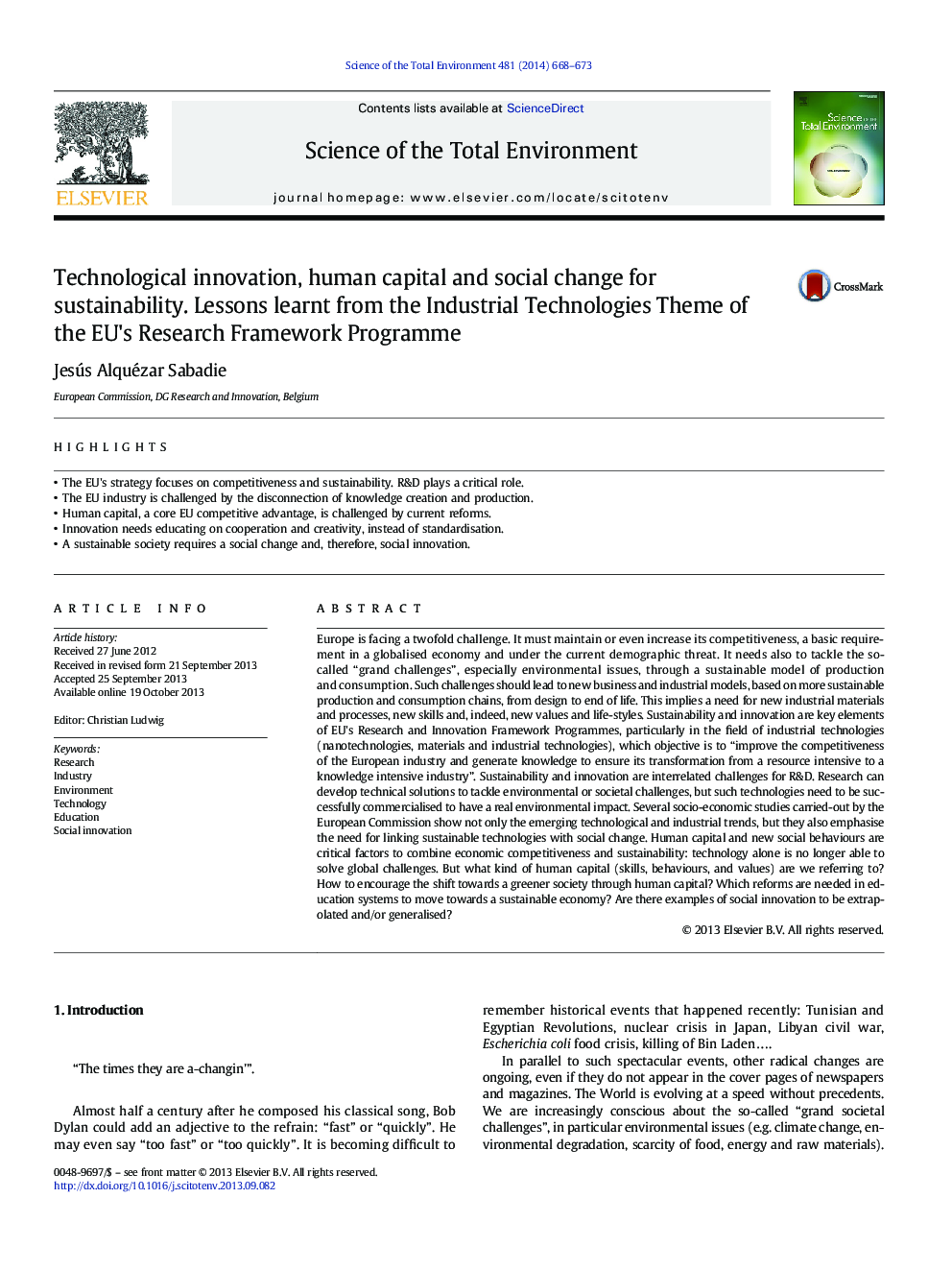| کد مقاله | کد نشریه | سال انتشار | مقاله انگلیسی | نسخه تمام متن |
|---|---|---|---|---|
| 6330949 | 1619786 | 2014 | 6 صفحه PDF | دانلود رایگان |
- The EU's strategy focuses on competitiveness and sustainability. R&D plays a critical role.
- The EU industry is challenged by the disconnection of knowledge creation and production.
- Human capital, a core EU competitive advantage, is challenged by current reforms.
- Innovation needs educating on cooperation and creativity, instead of standardisation.
- A sustainable society requires a social change and, therefore, social innovation.
Europe is facing a twofold challenge. It must maintain or even increase its competitiveness, a basic requirement in a globalised economy and under the current demographic threat. It needs also to tackle the so-called “grand challenges”, especially environmental issues, through a sustainable model of production and consumption. Such challenges should lead to new business and industrial models, based on more sustainable production and consumption chains, from design to end of life. This implies a need for new industrial materials and processes, new skills and, indeed, new values and life-styles. Sustainability and innovation are key elements of EU's Research and Innovation Framework Programmes, particularly in the field of industrial technologies (nanotechnologies, materials and industrial technologies), which objective is to “improve the competitiveness of the European industry and generate knowledge to ensure its transformation from a resource intensive to a knowledge intensive industry”. Sustainability and innovation are interrelated challenges for R&D. Research can develop technical solutions to tackle environmental or societal challenges, but such technologies need to be successfully commercialised to have a real environmental impact. Several socio-economic studies carried-out by the European Commission show not only the emerging technological and industrial trends, but they also emphasise the need for linking sustainable technologies with social change. Human capital and new social behaviours are critical factors to combine economic competitiveness and sustainability: technology alone is no longer able to solve global challenges. But what kind of human capital (skills, behaviours, and values) are we referring to? How to encourage the shift towards a greener society through human capital? Which reforms are needed in education systems to move towards a sustainable economy? Are there examples of social innovation to be extrapolated and/or generalised?
Journal: Science of The Total Environment - Volume 481, 15 May 2014, Pages 668-673
